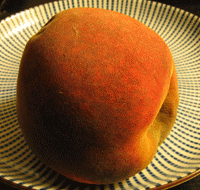
Photo from wikipedia
Monacolin J (MJ) is a key intermediate for the synthesis of cholesterol-lowering drug simvastatin. Current industrial production of MJ involves complicated chemical hydrolysis of microbial fermented lovastatin. Recently, heterologous production… Click to show full abstract
Monacolin J (MJ) is a key intermediate for the synthesis of cholesterol-lowering drug simvastatin. Current industrial production of MJ involves complicated chemical hydrolysis of microbial fermented lovastatin. Recently, heterologous production of MJ has been achieved in yeast and bacteria, but the resulting metabolic stress and excessive accumulation of the compound adversely affect cell activity. Five genes, tapA, stapA, slovI, smokI and smlcE, coding for fungal statin pump proteins were expressed in an MJ producing yeast strain, Komagataella phaffii J#9. Overexpression of these genes facilitated MJ production. Among them, tapA from Aspergillus terreus highly improved MJ production and led to a titer increase of 108%. Exogenous MJ feeding study on an MJ non-producing strain GS-PGAP-TapA was then performed, and the results illustrated tough entry of MJ into cells and possible efflux action of TapA. Further, intracellular and extracellular MJ levels of J#9 and J#9-TapA were analyzed. The extracellular MJ level of J#9-TapA increased faster, but its intracellular MJ percentage kept lower as compared to J#9. The results proved that TapA effectively excreted MJ from cells. Then functions of TapA were evaluated in a high-production bioreactor fermentation. Differently, TapA expression caused a low MJ titer but high intracellular MJ accumulation in J#9-TapA compared with J#9. Statin pump proteins improved MJ production in K. phaffii in a shake flask. Exogenous MJ feeding and endogenous MJ producing experiments demonstrated the efflux function of TapA. TapA improved MJ production at low MJ levels in a shake flask, but decreased it at high MJ levels in a bioreactor. This finding is useful for statin pump improvement and metabolic engineering for statin bioproduction.
Journal Title: Bioresources and Bioprocessing
Year Published: 2020
Link to full text (if available)
Share on Social Media: Sign Up to like & get
recommendations!